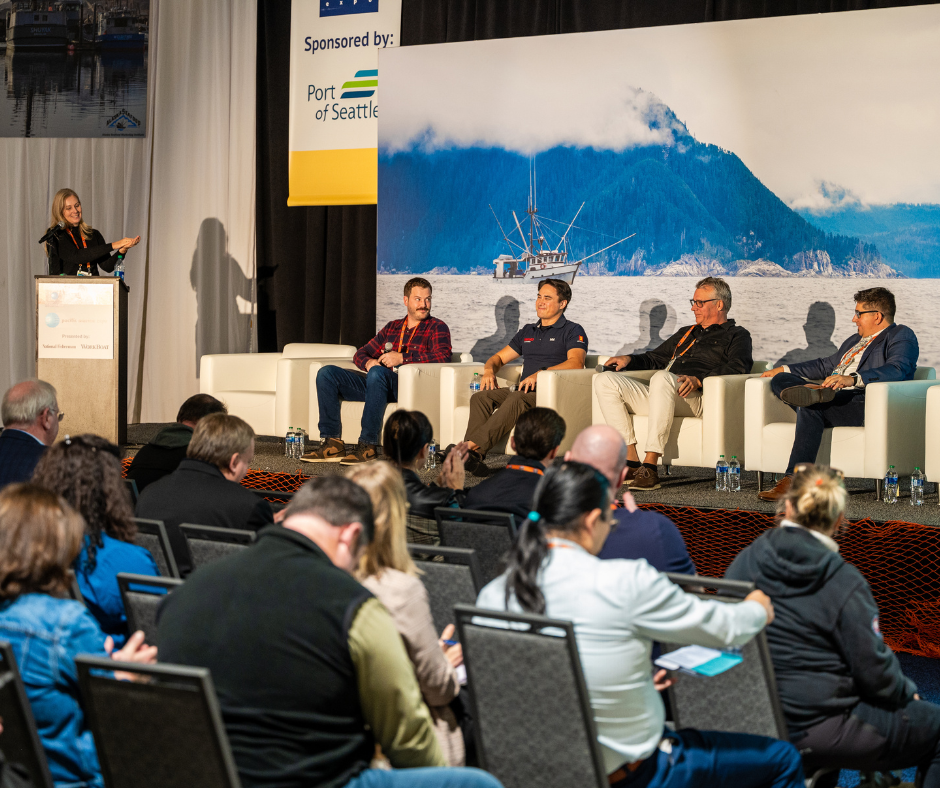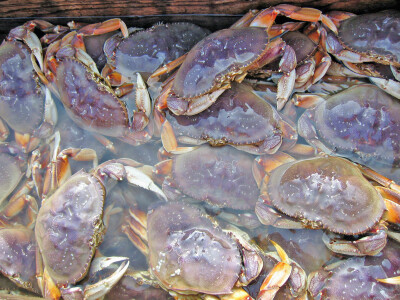The Pacific Marine Expo (PME) is once again at the forefront of driving essential conversations about the future of commercial fishing. With a wide range of forward-thinking sessions, PME will address the industry's most pressing issues, from the latest advancements in engine efficiency and sustainable maritime fuels to unlocking vast resources for fishing and seafood businesses. Attendees will gain valuable insights into technological innovations, such as decarbonization strategies and cutting-edge fuel options, designed to help commercial fishing operations thrive in a rapidly changing world. In collaboration with Maritime Blue, these sessions will unite industry leaders, stakeholders, and innovators to explore the best paths forward for a sustainable and efficient future in commercial fishing.
Here are the top 5 most innovative sessions at PME this year:
Join Christian Stark, Vice President of Aurora Marine Design, for an in-depth look at the latest innovations aimed at boosting engine efficiency, cutting maintenance costs, and reducing emissions. Stark, alongside Karl Pettersen and Michael Complita will provide a detailed overview of the different engine types and systems currently in development, designed to meet the evolving needs of the maritime industry.
Sit down with key members of the Sustainable Maritime Fuels Collaborative for an insightful update on efforts to unite supply and demand stakeholders in accelerating the production and adoption of sustainable maritime fuels and technologies. This session will highlight the latest advancements taking place in Washington and the Pacific Northwest, driving the region towards a cleaner, more sustainable maritime future.
Hear from Noah Oppenheim, Principle of Homarus Strategies as he dives into the significant financial opportunities available for fishing and seafood businesses through the USDA, should key seafood priorities be enacted. With the USDA issuing approximately $130 billion in Farm Credit Program loans annually, and $3.4 billion in young farmer and rancher loans, there is potential for a substantial increase in low-cost capital for the seafood sector.
Maritime Blue’s Venture Programs offer support to startups and entrepreneurs from the Pacific Northwest and beyond, helping them at every stage of development to secure demonstration opportunities, connect with customers, and access capital. Discover the latest innovations shaping the maritime, fisheries, and ocean sectors in this insightful session.
The maritime industry is evolving to meet decarbonization goals, and the commercial fishing sector will soon need to adopt low-carbon technologies. Options include biofuels, methanol, ammonia, hydrogen, and energy storage systems, though safety and training are crucial, particularly with hazardous fuels like ammonia. While biofuels and electrification are likely to be implemented soon, methanol and hydrogen may become viable in the future. Jorge Segovia, Senior Engineer with the American Bureau of Shipping, will discuss how his organization and others are creating guidelines to help the fishing industry transition to cleaner and safer energy solutions.
With these innovative sessions, the Pacific Marine Expo is set to provide attendees with effective strategies to navigate the evolving landscape of commercial fishing. From advancements in engine technology to sustainable fuel options and financial opportunities, PME will equip industry professionals with the tools and knowledge needed to thrive in a rapidly changing world. By fostering collaboration between experts, entrepreneurs, and stakeholders, PME continues to lead the charge toward a more sustainable, efficient, and prosperous future for the commercial fishing industry. Don’t miss out on the opportunity to be part of these critical conversations.







